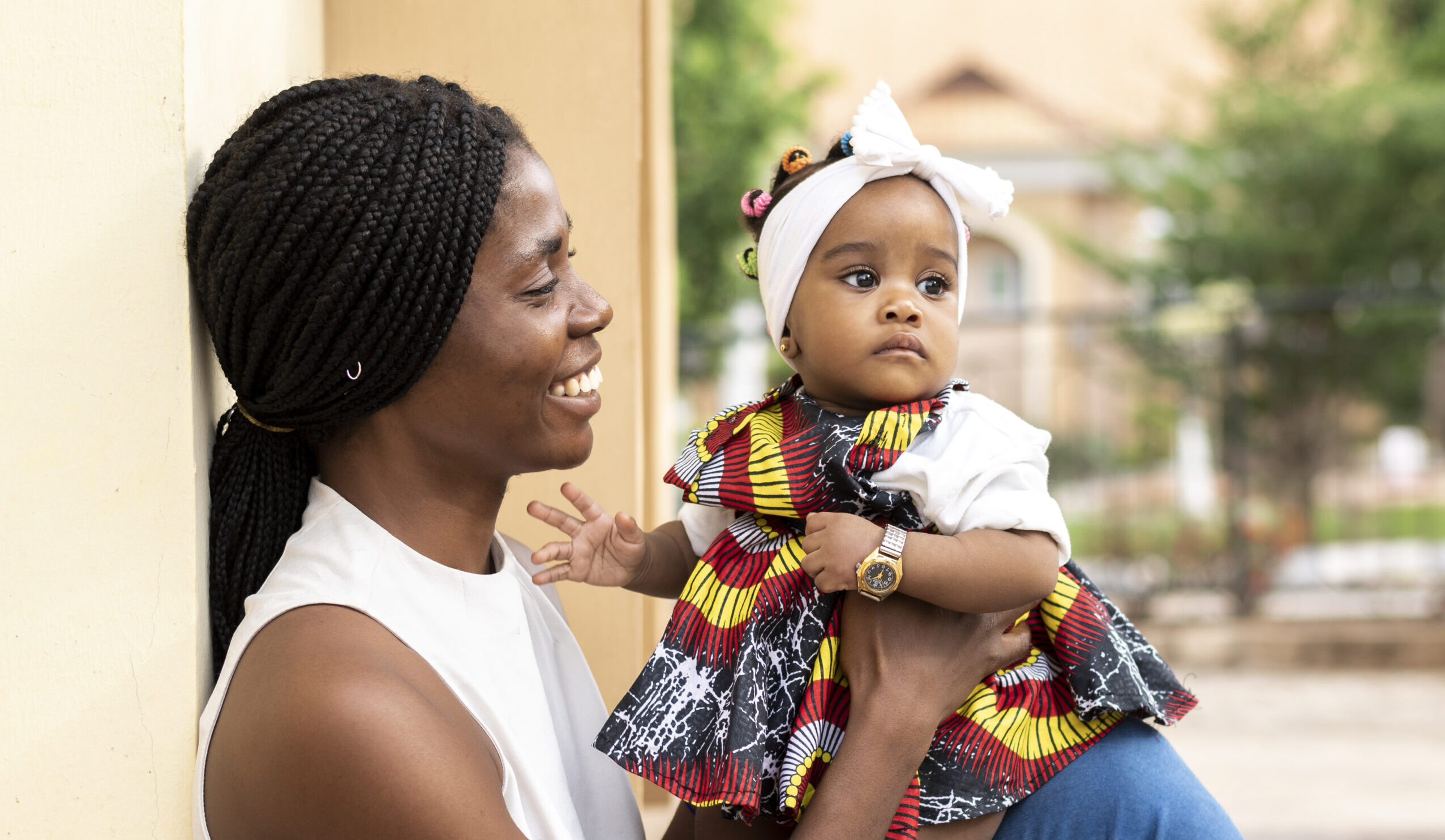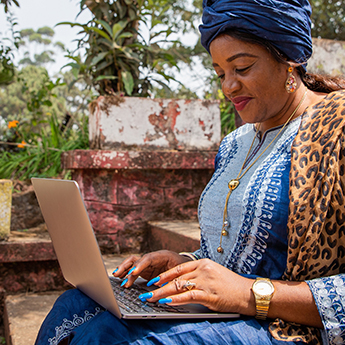Local partnerships to accelerate family planning
FP2030 Partnership Fund

The FP2030 Partnership Fund has concluded two rounds of funding challenges, in which grantees submitted ideas to fund catalytic change in their communities.
About the Fund
Too many family planning advocates and organizations are notsufficiently resourced, don’t have access to levers of power or financing, and are not supported to connect with other family planning experts and decision makers to drive solutions. We believe local innovative solutions have the potential to significantly accelerate rights-based family planning, as well as influence, create, or change policies and strategies, especially at the subnational level in FP2030 commitment-making countries. Other issues addressed by the Partnership Fund include:
- Lack of flexible funding available to national CSOs and nontraditional actors, including youth-led groups, community-based organizations, faith organizations, trade unions, the private sector, LGBTQ groups, and feminist organizations. The Partnership Fund is intended to serve communities that may be overlooked or underserved by other funding opportunities.
- Limited ability of CSOs to receive funding from traditional family planning donors, participate in decision-making processes, and sustainably engage in national and subnational family planning policy processes. The Partnership Fund seeks to welcome grantees into the world’s largest community of practice focused on family planning, made up of FP2030 commitment makers.
- Lack of mutual accountability mechanisms where governments, in collaboration with key stakeholders, are obligated to deliver on the public health commitments they have made, and civil society is galvanized to support the implementation of action plans and engaged to monitor progress toward achieving the commitments along with the government. The Partnership Funds aims to provide financial and technical resources to national civil society groups and nontraditional actors to support their advocacy and accountability efforts
- Limited convening power among family planning and sexual and reproductive health and rights movements within countries makes it difficult for civil society and nontraditional actors to coordinate and to build bridges with other movements for knowledge sharing and learning. FP2030 works with the widest possible range of stakeholders to build the most diverse – and therefore the strongest – movement for rights-based family planning.
The Partnership Fund supports local civil society organizations to advance the following key expected outcomes:
- Family planning financing gradually becomes sufficient and resilient, with commitment-making countries increasingly able to sustainably finance their family planning work and transparently track their expenditures.
- Political commitment and policy environment are expanded and consistently supportive, leading to a more enabling environment for rights-based family planning at the national and subnational levels.
- Health systems meet the information, service, and supply needs of all individuals everywhere.
- The quality of family planning services for adolescents and young people is improved, including for those furthest behind and in humanitarian settings.
- The capacity of local and community-based actors to meaningfully contribute to the continuation of family planning services during humanitarian crises is strengthened.
Funding recipients will be expected to bring about positive change in one or a combination of these expected outcomes. What the Partnership Fund offersFP2030 will publish a series of at least three competitive “Challenges” between November 2023 and June 2025, allowing civil society organizations, including youth-led organizations, entrepreneurs, feminist organizations, and other nontraditional actors to secure small grants and implement locally led initiatives to solve a wide range of key family planning problems. The shared thread across the Challenges is the improvement of rights-based family planning policies and strategies by supporting locally led solutions. Challenges will vary in their specific funding priorities, eligibility criteria, geographic focus, and modalities. Successful applicants to the partnership fund will receive catalytic grants, in line with the key priorities stated above. Partnership grants will cover the following:
- Program costs: This makes up the bulk of the grant’s total budget. Program costs include approved program activities directly responding to the Request for Proposal’ priorities. They also include associated staffing costs (up to 30% of all Programs costs), and administrative costs (up to 10% of all Programs costs).
- Capacity strengthening costs: Partnership Fund’s recipients will receive earmarked funds for organizational capacity strengthening as part of their award. On average, we expect these funds will amount to 10% of the total grant’s amount. Specific organizational strengthening needs will be identified by funding recipients at the beginning of their project through a self-assessment process, and progress will be monitored throughout the implementation period.
- Learning and networking costs: Partnership Fund’s recipients will also receive earmarked funding to participate in learning and networking opportunities On average, we expect these funds will amount to 10% of the total grant’s amount. Specific knowledge sharing and learning opportunities will be identified by Fund recipients at the beginning of their project, in close collaboration with FP2030’s Support Network.
The Partnership Fund is coordinated by the FP2030 Support Network, which consists of five regional hubs.
FP2030 will accept applications on a competitive basis through scheduled funding rounds. Funding is provided in US dollars through the United Nations Foundation, which hosts the FP2030 North America and Europe Regional Hub. Applications will be assessed through a participatory and transparent process to make funding decisions. Participatory grantmaking ensures that the voices of local stakeholders are centered throughout the entire grantmaking process. All funding decisions will be made by the FP2030 Support Network in close collaboration with representatives of local stakeholders as well asFP2030’s Focal Points and regional partners . We take a trust-based approach to grant management, providing latitude to grantees so that they can focus on what matters most: implementing a successful project effectively and efficiently. We use trust-based reporting and MEL (monitoring, evaluation, and learning) processes and tools. Storytelling and communications requirements are right-sized to ensure that funding recipients’ time and resources are mostly spent on implementation.
Eligibility criteria vary depending on the Challenge.
The FP2030 Partnership Fund is intended to provide catalytic grants to national or local nontraditional family planning partners. International non-government organizations may apply as a partner within a coalition or consortium of partners led by a southern-based organization where relevant and reasonable.
FP2030 will prioritize nontraditional actors, including youth-led groups, community-based organizations, faith organizations, trade unions, the private sector, LGBTQ groups, and feminist organizations.
Your organization will need to be registered in the country where you are planning to implement your project and hold a bank account under its name.
FP2030 will prioritize funding organizations operating at the subnational level.
If you are unsure of your eligibility, please contact partnershipfund@fp2030.org.
We recognize the broad scope of civil society and the wide range of organizations, actors and coalitions it encompasses. Civil Society Organizations can include:
- Community groups
- Youth groups
- Non-governmental organisations
- Indigenous groups
- Charitable organisations
- Faith-based organisations
- Research institutes
- Social enterprise groups
- Public-private partnerships
- Communications and media groups
- Professional associations
If you don’t feel you identify with any of the above groups, please contact us at partnershipfund@fp2030.org.
Applications from consortia are possible, as long as roles and responsibilities of each consortium member are clearly identified in the project’s work plan. Applications must be submitted by a “prime” recipient, who will act as main point of contact for FP2030 for the duration of the grant, and be fiducially responsible for the received funds on behalf of the consortium.
Applications for well-established civil society coalitions are strongly encouraged.
There are no limits to the number of organizations in a consortium.
FP2030 supports groups that find it difficult to access funding, including unregistered groups. We understand that it may not be possible for your group to register officially as an organization or to have your own bank account if your application is successful. We will either support you to get registered and open a bank account or support you to identify a fiscal sponsor – an organization that is prepared and able to help manage grant funds on your behalf.
Due to limited resources, this will vary from Challenge to Challenge, and will be specified in each Challenge’s Request for Proposals. In general, only countries whose governments that are in the process of making or have already made a commitment to FP2030 will be considered.
The total amount of funding available for each Challenge will vary and be specified in the Request for Proposals published by FP2030. We expect grants to average approximately $40,000.
All Fund recipients will receive earmarked funds for organizational capacity strengthening as part of their award. On average, we expect these funds will amount to 10% of the total grant’s amount.
Specific organizational strengthening needs will be identified by funding recipients at the beginning of their project through a self-assessment process, and progress will be monitored throughout the implementation period. FP2030 will facilitate introductions between Fund recipients and vetted regional capacity strengthening specialists in a wide range of thematic areas, including SMART advocacy techniques, expenditure tracking best practices, governance strengthening (esp. for coalitions), MEL systems strengthening, fundraising, storytelling, etc.
All Partnership Fund’s recipients receive earmarked funding to participate in learning and networking opportunities to allow recipients to share their work in various national, regional and international platforms and events (for example, national technical working group meetings, FP2030 regional Focal Point Workshops, international conferences such as ICFP or Women Deliver), participate in country-to-country exchanges, and attend virtual convenings.
Specific knowledge sharing and learning opportunities will be identified by Fund recipients at the beginning of their project, in close collaboration with FP2030’s Support Network.
Partnership Fund grants have an effective period of performance of 12 months. No-cost extensions may be considered on a case-by-case basis.
FP2030 runs a two-step process to identify grantees, consisting of an Expression of Interest phase, followed by an invitation to submit a full application for shortlisted entries.
Requests for Proposals are posted four to six weeks in advance of the opening date for submission of applications. Applicants generally have three weeks to complete their initial Expression of Interest and a further two weeks to complete full applications after Expressions of Interest have been shortlisted.
All applications must be submitted by email using the relevant application forms, which can be downloaded on FP2030’s website.
Expressions of Interest consist of relatively brief narrative statements, which must be submitted with registration documentation. Full applications include a full workplan and budget.
We accept applications on a competitive basis through scheduled funding rounds. You can register here to receive a notification when a new funding round is open.
Specific funding criteria vary depending on each Challenge. They can be found in the Request for Proposals published by FP2030.
We implement a participatory and transparent process to assess applications and make funding decisions. Participatory grantmaking ensures that the voices of local stakeholders are centered throughout the entire grantmaking process. All final funding decisions are made by regional validation committees with representatives of local communities. FP2030’s Focal Point and regional partners will also be intentionally consulted at every point of the process.
The Partnership Fund operates as a pool fund. As of November 2023, MSD for Mothers and the Bill & Melinda Gates Foundation made significant contributions to the Fund.
If you are interested in funding the Partnership Fund, or would like to be considered as potential capacity strengthening partner for Fund recipients, please contact us at partnershipfund@fp2030.org.
Meet the Partnership Fund grantees to date. Each of these grantees submitted a proposal with a plan to spark catalytic change in their community.








